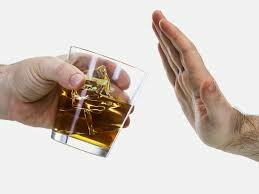5 Myths of Addiction and Recovery
September 30, 2016 Thomas G. Kimball, Ph.D., LMF
Published in The Recovery Revolution, September 30, 2016. View the Article Here
Myths develop over time as stories passed down from generation to generation in an effort to explain the unexplainable. For example, Greek mythology is the collection of stories and teachings explaining the origins of the universe and creation. These narratives are critical in understanding ancient Greek religious and political practices.
Today, we continue to tell stories and create narratives to explain the unexplainable and to answer the unanswerable. The word “addict” has evolved to mean someone who has a compulsive and harmful need for, and use of, a habit-forming substance. Addiction is also characterized by physical symptoms of tolerance and withdrawal.
But why do people become addicts? How can we help them? Many people erroneously still believe several “myths,” stories, and narratives about individuals and families who face the struggle of addiction. Over the years, working with individuals and families, I have confronted and questioned the validity of these “myths” to help people move forward to recovery and wellness. Below are 5 common myths about addiction and those who struggle with it:
Myth #1: Addiction is a Choice
No one in their right mind would chose to be an addict. All you have to do is sit with someone who is suffering and hear their story to understand the chronic nature of what they carry and how difficult it is to find and stay in recovery. The truth is that addiction is a “chronic disease of the brain . . . reflected in an individual pathologically pursuing reward and/or relief by substance use and other behaviors”. Remember, addicts actually suffer from a brain disease and are not fully in their right minds. Instead of being lectured about choice, they need understanding, treatment and long-term recovery support.
Myth #2: Addicts Are Homeless and Live Under a Bridge
Many people erroneously believe that addicts look a certain way or live a certain lifestyle. For example, when asked to picture an addict, many still envision someone who is poor, unemployed, male, minority and living or hanging out on the streets. The truth is that one out of ten people suffer from addiction regardless of socioeconomic status, employment, gender or race. In fact, if we lined up ten people and asked you to pick the person who struggles with addiction, you would not likely be able to tell which one is an addict and which one isn’t. None of us can truly say who might be struggling with addiction and who is not. Judging people based on stereotypical views is discriminatory and highly inaccurate, helping no one.
Myth #3: Addicts Come From Bad Families
After working with hundreds of families with loved ones who struggle with addiction, I realize addiction has no respect for families. Addicts come from all types of families; bad, mediocre and excellent ones. We as a society need to stop telling the story that an individual suffering from addiction is the product of poor parenting or an unhealthy family situation. The truth is we don’t really know what kind of family someone comes from and ought not to assume or place the blame on parents or family members. Blaming causes unmeasurable harm to the recovery process and is never helpful.
Myth #4: Family Members Can’t Help With Recovery
After family members have worked through their personal fears of loving someone who suffers from addiction, they can be incredibly helpful in the journey of recovery. Overcoming this fear can be extremely difficult and loved ones often need help and guidance in doing so. Family members who learn to love and care for themselves first in a healthy way, experience a personal recovery journey. As they examine and adjust relational boundaries, they become powerful in their ability to influence and support their loved ones who still suffer as well as those who are working to maintain recovery.
Myth #5: There is Only One “Right” Way to Recover
Some people believe there is only one right way to be in recovery. The truth is that people have been finding recovery and discovering their individual path to wellness in a variety of ways for a long time. Almost every day there seems to be a new idea or a new pathway identified from 12 step fellowships, faith-based approaches and medication-assisted therapies to yoga, wellness, and meditation. Given how little we actually know about how and why a person stays in recovery over the long term, it is dangerous to believe there is a one-size-fits-all recovery plan. Remember, what works for one person may not work for another in recovery.
As we continue to confront the validity of the “myths” surrounding addiction, we can learn to be less judgmental and more tolerant of individuals and families impacted by the disease. By telling the “truth” as we currently understand it, the hope is that more people can be supported in finding long-term recovery and wellness in their lives.









